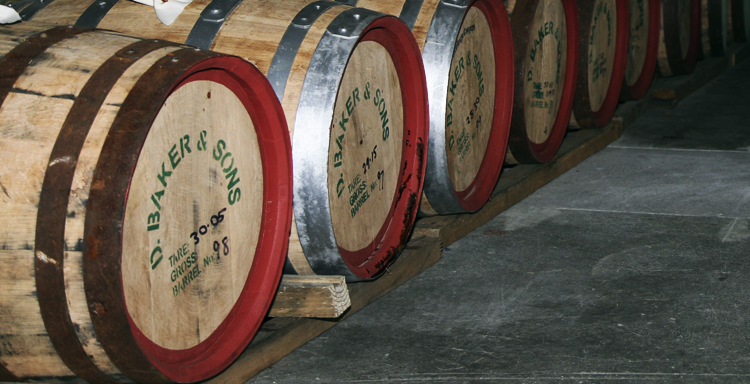Jim Murray and the late Michael Jackson are frequent companions on cold winter evenings when the right-thinking man’s thoughts turn to whisky. Jackson, who died in 2007, and fellow-Englishman Jim Murray, established themselves as the pre-eminent whisky commentators in the world, and Murray’s Annual Whisky Bible is eagerly awaited by connoisseurs everywhere. No-one has visited more distilleries than Murray, who became the first full-time whisky writer in 1992, and has covered the world in his quest for the finest drop.
Australia, despite its strong Celtic heritage, hasn’t developed much of a whisky industry and a variety of reasons have been put forward for this. The United States and Canada, both largely colonised by the same people at about the same time, have extensive whisky traditions, so why not Australia?
There have been illicit stills in farming and outback districts – just as there were in Britain and the North American colonies – and these were suppressed by revenue and customs officials in the time-honoured tradition. But given the Australian population’s larrikin attitudes, why did such suppression stick? Perhaps the average Aussie was more law-abiding than popular memory holds, or perhaps it is all down to climate – it’s just too hard to make good whisky in hot countries.
In any event, when Jim Murray started finding Australian whiskies that he was prepared to score in the high 80s and 90s – a tally usually reserved for the world’s top tipples - I sat up and started paying attention. A whisky from Tasmania, the Lark Distillery’s Single Malt Distillers Selection, scored a brilliant 91 out of 100. Even more impressively, a whisky hailing from Melbourne, Bakery Hill’s four-year-old Peated Single Malt Cask Strength, notched up a superlative 94. To put this into perspective, Murray rates whiskies with scores of 90 as “brilliant”, and 94-97 as “giving a reason to live”. Only 12 whiskies in the world are rated at 97, the highest score ever awarded.
Clearly therefore Antipodean whiskies have something to offer. Most whisky-distilling takes place in Tasmania, the part of Australia with the most temperate climate and which also reflects the climatic conditions of the traditional homes of fine whisky, Britain and Ireland. I visited the Lark Distillery at their harbour-side building in Hobart. Established in 1992, 153 years after the last licensed distillery in Tasmania closed its doors, Lark now produces up to 1200 litres of spirit a month.
While miniscule by comparison with the world giants in Scotland, Lark is nevertheless managing to sell their product at a premium over imported malt whiskies from Scotland. Part of the reason for this premium is the very limited supply and the need to keep the spirit maturing in barrels for years. It takes a brave soul to commit the capital to get a distillery off the ground in the certain knowledge that the first bottle won’t be sold for at least three years, and most probably even later.
Further north, in an industrial estate on the outskirts of Melbourne, I visited David Baker of Bakery Hill. A food scientist by trade and a biochemist by training, Baker was struck by how often he was assured that malt whisky couldn’t be made in Australia. Knowing something about the business of fermentation and distilling, he made several trips to Tasmania to check out the nascent industry there. Determined to have a go himself, Baker filled his first casks in 1999.
Most of his whisky is barreled in small 100-litre casks. These are made locally from larger American Oak casks whose insides have been specially charred and which Baker sourced from Jack Daniels in the US. The smaller casks and warmer ambient temperatures in Melbourne mean that the maturation process that takes 10 years in Scotland is complete in five years – which is a real bonus for the start-up distiller’s cash-flow!
These days David Baker can’t keep up with demand. A five-fold increase in capacity in mid 2007 is already insufficient, and when we met in early 2008, he was planning a purpose-built distillery in new premises, with new stills and wash vats. So much for “ye cannae make malt whisky in Australia!”
Both Bakery Hill and Lark are keen to promote the Australian content of their whiskies: Australian Barley, pure Australian spring water, and in Lark’s case, even real Australian peat from their very own Tasmanian peat bog. Bakery Hill get their Australian barley malted and peated in Scotland, then re-import the malted grain, but Baker has plans to make this part thoroughly Australian too, although not at the cost of losing his position as arguably the best distiller of malt whisky in the country.
Both distilleries will sell you whisky inside Australia over the internet although neither has much of a distribution range outside of their home territories. Producing whisky of such top-notch quality they understandably have trouble keeping up with demand close to home.
